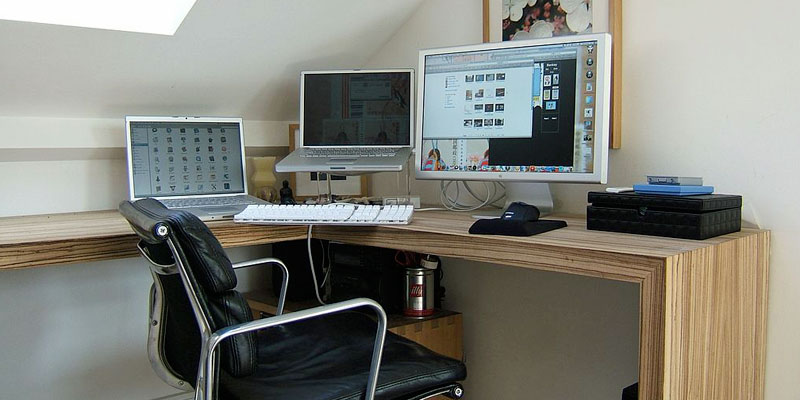Phil Flaxton is Chief Executive of Work Wise UK, a not-for-profit initiative backed by the TUC and CBI, which promotes smarter working. Work Wise UK is a campaign and development organisation providing consultancy services and support to implement smarter ways of working, bringing together experience and best practice from the public, private and third sectors to promote the broader use of smarter working as a modern day approach to working life. Phil has been CEO of Work Wise UK since 2006 after ten years as CEO of InterForum.

“…If people feel self-empowered because they have that flexibility in the workplace, they feel more appreciated as a member of staff. It helps with staff retention, reducing staff absenteeism, and also assists with things like supporting people going on maternity and paternity leave…”
Challenging outdated working practices through smarter working
Work Wise UK was set up in 2006. It’s a non-profit making organisation which works to bring about a fundamental change in working practices in the UK. We often talk about outdated methods of work – for the last 100 years we’ve had a culture of going to a place of work Monday to Friday, nine to five, and of course with modern day technology there is clearly a different way to work. We call that ‘smarter working’, and we aim to help organisations understand the benefits of changing outdated working practices and implementing a smarter working strategy.
The structure of our economy and consequently our workplaces has changed significantly. Cultural, economic and social changes are affecting attitudes to how we balance or mix work and lifestyle, where increasing mobility and technology is shifting the acceptance or need for traditional office based, nine to five work patterns, to be replaced by more home-based, flexible ways and periods of work.
Such fundamental change towards smarter working, such as home working, is recognised by increasing numbers of inspired, and more trusting employers.
They recognise that by changing outdated working practices and implementing a smarter working strategy provides them with an opportunity to set a road map for real work force transformation, creating benefits for their employees, themselves as well as contributing to the growth of the UK economy.
Working from home: Not about watching daytime TV and doing the laundry
The first thing to say about home working is that it’s not for everyone. This is not a one size fits all. It doesn’t suit everybody, temperament wise for example. A lot of people that we come across say: “I wouldn’t like to work from home.” It’s either because they haven’t got anywhere in the home they could work and be productive, or that they would miss the camaraderie and the interaction with other members of staff.
Having said that, there’s an increasing number of people that do want to work from home and do want to work in a different way. In fact two weeks ago we had our Work Wise Week campaign and the TUC produced some very compelling evidence which says that there is a significant increase in the amount of employees in the UK who want to work flexibly.

Self-discipline – if you are somebody who gets up and switches on the telly and who thinks, “Maybe I’ll switch my laptop on and check a few emails…” and you’re easily distracted, you’re not going to be that productive. Devise a work plan for the day. If you’re being task driven, make a plan of what you need to get done. And as important, keep to it!
Location – try to find somewhere in your home where you can work comfortably. Not perched on the sofa in front of the telly, or at the end of the kitchen table with the washing machine whirring away in the background with the dog barking. Again, you’re not going to be that productive if you’ve got distractions around you.
Find a spare bedroom or somewhere quiet and mentally define that area as your place of work, separate from the rest of your home. When you’ve shut the door, you’re at work. Not everybody has got that available to them, but I’ve seen many people living in flats who have been very creative and devised an area that is their work space with all their work things around them.
Differences between home working / flexible working / agile working / smarter working
Home working refers specifically to someone who is a home worker and their place of work is permanently their home. You see examples of this now with organisations who provide call centre facilities as virtual call centres. They have people who, instead of all going to a large building and sitting together in a call centre, are operating as a virtual call centre at home using technology. They are permanently based at home.
British Gas has engineers who go out and fix people’s boilers. Their place of work in their contract of employment is their home. They have the technology where the next day’s jobs are emailed to them and once a week they go to a depot to pick up the equipment they need, but their place of work is at home.
Some people use the term when describing that they occasionally work from home, but home working, to us, is when you are permanently based at home.
The term flexible working has been around for decades, and it has different meanings to different people and organisations. We regard it as a term used to describe a programme of change to working practices, workplaces and technologies. It can also be used to describe a range of specific working patterns, such as part time working, nine day fortnights, four day working weeks, and compressed working hours.
Agile working is another term used by some organisations to define specific work practices to support objectives in terms of time, location and sourcing of labour. We don’t often use that term, although it pops up here, there and everywhere. In our view it’s just another term for managing a workforce in a different way.
Smarter working is a term that we use because we feel that there are lots of different terms out there, and we believe that if you are doing one or multiples of those things, you are, in effect, working smarter. So we use that as an all embracing term to capture all the aspects of working differently.
Commercial benefits for employers
There are quite a few commercial benefits for employers, but the key ones are the smarter working enables organisations to reduce their property resources and costs, travel costs and other resources used for work. If a smarter working strategy is implemented in the right way is can also increase productivity and efficiency.
If people feel self-empowered because they have that flexibility in the workplace, they feel more appreciated as a member of staff. It helps with staff retention, reducing staff absenteeism, and also assists with things like supporting people going on maternity and paternity leave.
We provide advice and guidance for organisations who want to implement a smarter working strategy and it is key to get across to senior management in an organisation that you have to retrain your line managers to manage their teams on output, rather than input. Work is something you do, not where you do it.
We’ve had occasions where we’re been to an organisation and they’ve said: “We already do this,” in reference to smarter working, but when we probe a bit deeper and ask what they’ve done to retrain managers on measuring on outputs rather than inputs, on more than one occasion the response has been a blank stare because they don’t know what we’re talking about. But if you don’t retrain managers, potentially you’ve got a recipe for disaster on your hands, because if they don’t know how to set tasks and to assess people on the output of those tasks, then chaos can ensue!
For any organisation thinking about implementing a smarter working strategy, the place to start is with a staff survey. As I said earlier, it’s not a one size fits all, and a lot of companies have really got going on it, but if you are thinking about implementing smarter working, you need to devise a staff survey and find out who in your staff wants it.
Lifestyle benefit for employees
As you might expect, people who have worked smarter value the increased flexibility, which assists in improving their work / life balance. We live in a 24/7 connected world now, so work / life balance is moving up the list of priorities for people when they’re looking for employment.
Specific benefits can be reduced commuting, reduced cost of commuting if they’re allowed to work from home one or two days a week and they don’t have to buy a weekly season ticket, or put petrol in the car, that can have a benefit.
It might even be just not travelling into the office during rush hour – having the flexibility to work from home for an hour, drop the children off at school and then go into the office when the roads are quieter makes all the difference. They obviously still have to get their work that they’re tasked with done during the day, but reducing unnecessary commuting can be a great benefit. If you have a young family or you care for an aged relative, then having that increased flexibility is something that is seen as a valued benefit.
When we’re involved with organisations’ staff surveys, we find that a lot of people really value the increased trust from their employers. They are allowed to use self-control and this makes them feel more appreciated.
Coming up for Work Wise UK
Throughout the year we continue to raise awareness of the benefits of smarter working and we do that in a variety of ways – a lot of speaking at events, press and media comment etc. We also have our consultancy side of Work Wise UK, which offers a wide range of support to employers from all sectors assisting them to devise and implement a smarter working strategy, which is an ongoing programme throughout the year.
The next big media event for us will be Commute Smart Week in November, which is our annual media awareness programme to raise awareness of the challenges of commuting in the winter months.
Commute Smart Week reminds us that we have another opportunity to change our attitudes and thinking in relation to work activities. Are we going to see business interrupted by poor weather and disrupted travel? Or are we going to grasp the opportunity by changing the way employees work, think about the risks to our businesses and introduce more flexibility to cut out these disruptive influences on business performance and productivity?
During Commute Smart Week we work with a range of road safety groups and passenger transport groups, like the RAC Foundation and the Campaign for Better Transport. The dates for that are 13th–19th November 2016.
https://twitter.com/workwiseuk
Home office image credit: By THOR (Home Sweet Studio) [CC BY 2.0 (http://creativecommons.org/licenses/by/2.0)], via Wikimedia Commons






